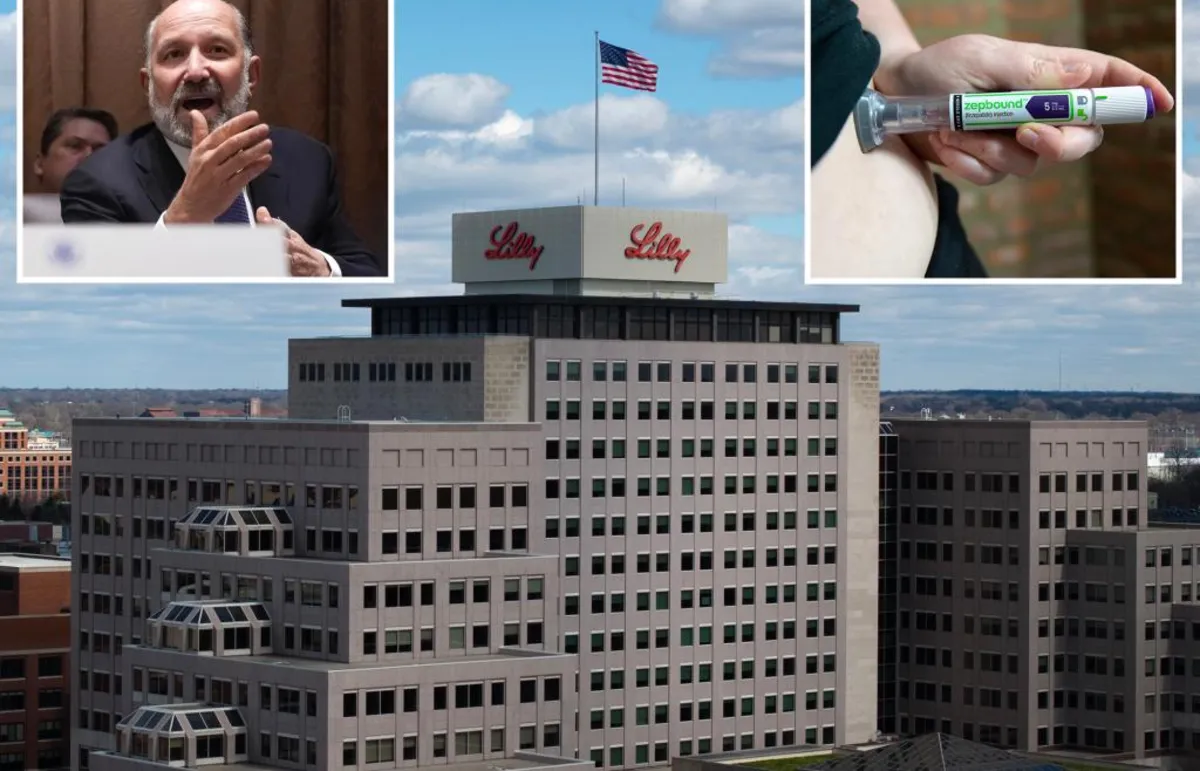
Eli Lilly announced on Wednesday its ambitious plan to invest $27 billion in building four new manufacturing plants in the United States. This strategic move comes as the pharmaceutical giant addresses the potential threat of drug import duties from the Trump administration. The Indianapolis-based company is set to dedicate three of these facilities to the production of active pharmaceutical ingredients for its medications, while the fourth plant will focus on sterile injectable medicines, including the popular weight-loss drug, Mounjaro.
The investment is expected to create 3,000 high-skilled positions and approximately 10,000 construction jobs. The locations for these new sites will be announced later this year, with expectations for them to be operational within five years. This significant investment in American manufacturing follows Apple's recent announcement of a $500 billion investment in the US over the next four years, aligning with President Donald Trump's push for revitalizing American manufacturing.
This move also indicates that pharmaceutical companies, including Eli Lilly, are making efforts to align with the new administration while advocating for favorable policies, such as the extension of corporate tax cuts initiated during Trump's first term. "We hadn’t built a new site in the US in more than 40 years until the first set of Trump tax cuts, so we need to see those either extended or improved to support this," said Eli Lilly CEO David Ricks at a press conference in Washington, DC. The event was attended by key Trump administration figures, including Secretary of Commerce Howard Lutnick and Kevin Hassett, Director of the National Economic Council, along with Indiana Sen. Todd Young.
"We need steel mills, we need precursor medicines. These are the fundamental underpinnings of America that we need to reshore," stated Lutnick. Shares of Eli Lilly saw a slight increase of around 0.5% in midday trading Wednesday, standing at $906.70 a share. The company's stock has risen by more than 16% since the beginning of the year.
While many pharmaceuticals are produced domestically, a significant portion of the industry’s supply chain relies on overseas production. Analysts at Morgan Stanley highlight that Ireland and Switzerland play a key role in drug manufacturing, with active pharmaceutical ingredients often sourced from China. Additionally, Indian firms are responsible for producing a large share of lower-cost generic medications. The Trump administration has previously threatened to impose tariffs on pharmaceutical imports, raising concerns among industry representatives. However, analysts believe such tariffs would likely have minimal financial repercussions for drug manufacturers due to the high profit margins associated with many medications.
Eli Lilly is currently engaged in negotiations with multiple states regarding the placement of its new manufacturing facilities and has indicated openness to additional proposals through mid-March. The company’s latest commitment follows a $23 billion investment in its US operations between 2020 and 2024, which included developing new manufacturing sites in Wisconsin and North Carolina, as well as expansions in its home state of Indiana.